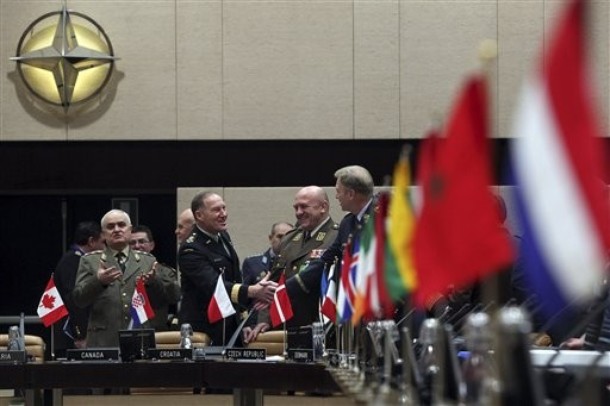
The problem is not just underfunding of NATO. Since the end of the Cold War, NATO and national defense budgets have fallen consistently - even with unprecedented operations outside NATO's territory over the past five years. Just 5 of 28 allies achieve the defense-spending target of 2 percent of GDP.These budget limitations relate to a larger cultural and political trend affecting the alliance. One of the triumphs of the last century was the pacification of Europe after ages of ruinous warfare. But, as I've said before, I believe we have reached an inflection point, where much of the continent has gone too far in the other direction. The demilitarization of Europe - where large swaths of the general public and political class are averse to military force and the risks that go with it - has gone from a blessing in the 20th century to an impediment to achieving real security and lasting peace in the 21st. Not only can real or perceived weakness be a temptation to miscalculation and aggression, but, on a more basic level, the resulting funding and capability shortfalls make it difficult to operate and fight together to confront shared threats. - Defense Secretary Gates
This is a pretty obvious example of how the U.S. security partnership with Europe is creating a Europe unable (or unwilling) to underwrite her own defense - or at least, do so at a level we find sufficient. U.S. policy-makers tried to walk a fine line during the Cold War: they wanted Western Europe to rebuild and rearm enough to pose a credible threat to a Soviet advance, but they wanted Western Europe to define her security interests through a U.S. led institution with the expectation that the U.S. was immediately on hand to protect them. The fear in the early days of NATO wasn't just the Soviet Union, but also Germany, which had to be kept from renationalizing her security policy lest it set off another round of European power politics and arms races.
Now we have the opposite problem - a Europe that won't engage in an arms build-up even though we need and want them too. Gates does intimate that a solution could lie in even more denationalization:
This may require developing new ways to maintain capabilities through multinational procurement, more common funding, or reallocating resources based on collective rather than national priorities - as the Danes have done by eliminating their submarine fleet in order to double their expeditionary forces. At a time of financial scarcity at home, increased reliance on collective efforts is one way to do more with less.
This would move much closer to the creation of a European military force and I wonder, with the Euro undergoing its worst stretch ever, if there is much appetite for this kind of project.
The problem for Gates and the U.S. in general is the incentive structure. Years of jawboning haven't nudged European defense budgets. We've made clear we view NATO as vital to our own defense, which means we will remain Europe's protector. Outside an event that forces a reappraisal in NATO capitals about threats to their security, why should they pony up? The American taxpayer is doing it for them. Calls for Western solidarity are all well in good but the bottom line appears to be that Europe understands where it can afford to scrimp and where it can't. Unless we can alter that cost/analysis, we shouldn't expect more defense investments anytime soon.
(AP Photo)











